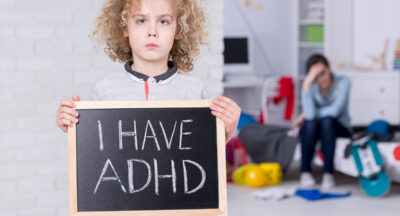
Natural Treatment For Attention Deficit Disorders Without Medication
Thoughts on Treating Attention Deficit Disorders Naturally and Without Medication
By Ari Goldstein, Ph.D.
When I was growing up in the 1970’s, there were always boys who were hyper. They couldn’t control their behaviors, responded impulsively to everything placed in front of them, and acted as if driven by little motors constantly running full speed inside their bodies. There were also boys who stared off into space on a regular basis, seeing a whole movie playing behind their eyes. There were girls who flitted around the room like social butterflies, and those who gazed out the window seeing a movie of their own. We just saw these kids as “different”. They acted a little differently, and they learned a little differently. They provided diversity to the classroom environment, a little entertainment for the other students, and certainly some stress for the teachers trying to manage their behaviors and teach at the same time.
Back then, Ritalin was something only considered for the most severe cases of diagnosed ADHD. Cases where children’s’ behavior was a danger to themselves or others. They were out of control, and there was nothing their parents or teachers could do. As time went on, the pharmaceutical companies marketed the disability of Attention Deficit (Hyperactivity) Disorder as well as they marketed their own products. By the mid 1980’s, medication management became a much more prevalent intervention for ADD/ADHD. As I graduated college and moved into teaching special education in the 1990’s, I saw an increase year after year in the diagnoses of Attention Deficit Disorders. As the diagnoses rose, so did the use of stimulant medications. Ritalin, Adderall, Vyvanse, Straterra, and the list continued to grow. I often wondered if these drugs were being prescribed to really help the kids, or to help those around them manage their behavior and learning more easily.
By the time I had entered private practice, well over 50% of the students referred to me had a diagnosis of ADD or ADHD, often in conjunction with various learning disabilities. While I saw that these medications were helping the kids to be better students, I began to develop an understanding that using the medication didn’t really change anything about the child’s functioning. It helped them focus, but it didn’t provide them with tools or a skill base for learning. It helped control hyperactivity, but it didn’t help them develop better self-regulation skills. I knew there had to be a better way, but by the same token the researcher in me read study after study about the efficacy of medication for the treatment of attention disorders. Very little research has been conducted into other methods for developing stronger focus and regulation without the use of medications.
Around the time I began to develop a toolbox of strategies for helping students develop executive skills (see Thoughts on executive functioning), I was also introduced to Dr. Sam Effarah . Dr. Effarah showed me the world of EEG functioning, and my thinking around learning and the brain changed dramatically. I was able to very clearly see quantitative data on how the brain was functioning, and saw how we could gain an amazing amount of very functional and actionable knowledge from a quantitative EEG assessment. I also began to see the tremendous value in teaching people to regulate their own functioning through neurofeedback in a much more meaningful and lasting way. Clinicians could very clearly see patterns in the brains of individuals diagnosed with ADD/ADHD that were different from the average brain. Often times, the frontal lobe of the brain in these individuals (the very “home” of executive skills) has far too much of the slow wave known as “Theta”. A fast spindly wave known as “High-Beta” was often seen throughout the brain of those with hyperactivity. This work, combined with my research into the effects of diet, supplementation, mediation, and skills training on learning and attention, led to our current philosophy of treatment at Cognitive Solutions Learning Center in Chicago.
Over the years, many of our patients have been referred to us after trying a range of psychiatric medications for disorders of attention. Some of these individuals responded well to the medications, some did not. The general consensus among both parents and children was that they would rather not be on medication. Through the regiment of changes mentioned above, combined with a solid investment on the part of the student and family, many of our patients have been able to successfully titrate off of medications and improve how their brain processes information for the long term.
Medication for the treatment of ADD/ADHD certainly has its place. Many individuals truly benefit from the medication, and it has saved the lives and futures of many bright and capable children. However our societal need for a quick fix, combined with the extreme efficacy of the medications in increasing focus, has led to an epidemic of over prescription of medications. The medication is not a panacea, and is but one small tool in the clinician’s toolbox for treating disorders of attention. Rather than a front line of treatment, these medications should be a last resort in the treatment of Attention Deficit Hyperactivity Disorder.
For more information on the Cognitive Solutions approach to treating Attention Deficits Hyperactivity disorder (ADD/ADHD) without the use of medications, please visit us online at www.helpforld.com.
Related Posts
What is Neuropsychological Testing for Children, and How Can It Help?
In the realm of mental health and education, cognitive assessments play a pivotal...
Private Clinic vs. Public School: What You Should Know About Psychoeducational Evaluations
Education is critical to the development and optimal health outcomes for...
How Can I Improve My Sleep?
Sleep is not just a period of rest; it is a fundamental aspect of our overall...
Treating ADHD Without Medication
ADHD stands for Attention Deficit Hyperactivity Disorder. This disorder is common...





